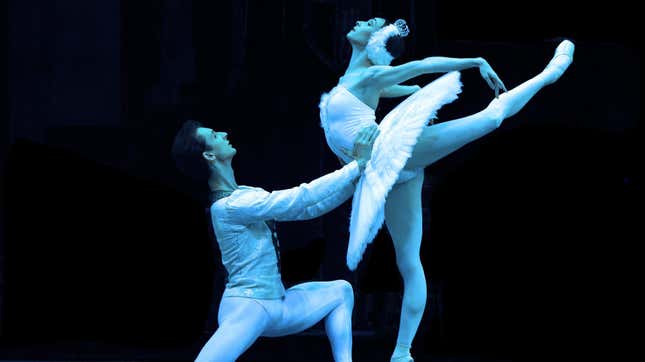Russian Ballerina’s Exit from the Bolshoi Ballet Is a ‘Massive Geopolitical Statement’
In a country where women do not have a voice, and within a wordless artform, Olga Smirnova’s departure from the Bolshoi Ballet is a leap toward freedom.
Entertainment

The once archetypal image of the Russian ballerina—silent, compliant, and delicate, regardless of national celebrity status—is distorting in real time.
On Wednesday, the National Opera Ballet announced that Russian ballerina Olga Smirnova of the Bolshoi Ballet, one of the reigning ballet companies in the world, has left the company and her native country to join the Dutch National Ballet, where she will be able to speak freely.
As Bolshoi’s principal soloist since 2016, 30-year-old Smirnova’s exit is one of the most culturally significant artistic departures from the warring country. Though she follows an exodus of other artists from both Bolshoi and the Mariinsky Ballet as Russia’s invasion of Ukraine intensifies, including the Italian Jacopo Tissi, the Brazilian David Motta Soares, and the British Xander Parish, Smirnova is the first major Russian-native ballet dancer to make a statement of her own in the midst of the ongoing crisis.
The release announcing Smirnova’s new appointment included a statement from the artist, which she had previously released on messaging app Telegram:
“I have to be honest and say that I am against war with all the fibers of my soul. It is not only about every other Russian perhaps having relatives or friends living in Ukraine, or about my grandfather being Ukrainian and me being quarter Ukrainian. It is that we continue to live as if this were the 20th century, even though we have formally moved to the 21st century. In a modern and enlightened world, I expect civilized societies to resolve political matters only through peaceful negotiations. I never thought I would be ashamed of Russia, I have always been proud of talented Russian people, of our cultural and athletic achievements. But now I feel that a line has been drawn… We may not be at the epicentre of the military conflict, but we cannot remain indifferent to this global catastrophe.”
To hear this sort of pointed language and a sharp denouncement from one of Russia’s most prized cultural gems is nothing short of a seismic wave coursing through the international dance landscape, or, as professor of music and Slavic languages at Princeton University Simon Morrison puts it, a “massive geopolitical statement.” Morrison, alluding to Smirnova’s decade-long reign in a long line of Bolshoi prima ballerinas at the state-run ballet company, noted that the simple act of leaving would’ve been a huge blow on its own. “But the fact that she left and attached words to that departure? It’s a devastating loss. Dancers are generally reticent,” he said. “Smirnova’s not condemning all of Russian culture, but she’s condemning this guy, this monstrosity, and this inhumane act, and as an artist of good conscience, she’s upholding the values that she believes in, which are antithetical to that regime.”
-

-

-

-

-

-

-

-

-

-

-

-

-

-

-

-

-

-

-

-

-

-

-

-

-

-

-

-

-

-

-

-

-

-

-

-

-

-

-

-








































